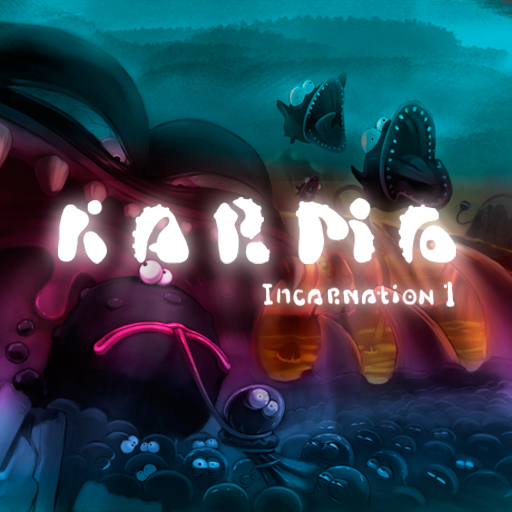Interview: “Karma Incarnation 1,” Possibly The Trippiest Point and Click Adventure Game
CEO and Producer of AuraLab, Andrey Sharapov, Answers a Few Questions About Karma

You may not believe in the concept of karma, but you should believe in "Karma," the upcoming IndieGoGo project by AuraLabs. "Karma. Incarnation 1" is still in it's initial funding phase on IndieGoGo with over a month left before they reach their $35,000 goal. Andrey Sharapov, CEO of AuraLabs, has taken time to answer a few questions about the direction of "Karma", the art influence, and where the project could go from here.
Player Theory: The most startling idea in "Karma" is the lack of spoken words or traditional dialogue. Have you found inspiration in other games that have tried this: “Journey,” “Flower,” and “Shadow of the Colossus,” to name a few. What have you learned about this style of narrative?
Andrey Sharapov: “Journey,” “Botanicula,” “Machinarium.” We learned that it is most universal language and it is a standalone type of art to implement this style of communication to the game conserve the atmosphere of the game world.
PT: The protagonist in "Karma," Pip, is described as being naive and, at times, brutal. How will the ideas of “Karma” come into play in developing Pip? Will the player need to worry about a poor decision coming back to haunt them?
AS: In a way, yes – but it depends on the way the player play. When you’re playing "Karma," you can solve most of quests with one of two ways: good or evil. For example, you can help some character or eat them to gain some items. Each evil deed alters Pip’s karma and changes his appearance; he’ll grow spikes and horns, and good deeds purify karma. Key characters respond differently to Pip’s karma, opening additional storyline. So game will have several storylines and endings. We think it will be interesting.
PT: “Karma” has a very organic yet otherworldly feel, making the creatures that inhabit the landscapes seem foreign and at home at the same time. How difficult is the artistic consistency when you are dealing with psychedelic imagery and seemingly random design?
AS: It’s a question for our art director and ideologist Alexander Kuvshinov, I think he has some kind of astral vision, like Pip, and he takes images straight from the cosmos or astral world. And a some of sources of his inspiration was the animated series like "Zumbakamera" and "Adventure Time."
PT: The ideas of karma and morality have been utilized in games before but with mixed results. How will present your ideas as sincere without succumbing to blind optimism? What kind of philosophy does the team use to tackle the ideas behind the game?
AS: We believe in the laws of karma and use this idea not only in the game. but in the ideology of our company, too. And in life of course. We are confident that if we all do good deeds, then the world will respond to us in return. That’s why we decided that part of the revenue from sales of the game will be donated to the wildlife rescue fund WWF. This is the one of reasons why we started the crowdfunding, so anyone who back us now will clean their karma too with our help, not just get copy of product =)
PT: Why did you choose to fund your project though a crowd source website? What are the advantages your team has seen?
AS: Ultimately we just want to stay independent. We have proposals from investors and publishers already, but we are trying to get funded without taking money from them and make the game without any cuts from the development process. But, if we will fail with crowdfunding, we will go that way.
PT:Point and Click adventures are becoming increasingly popular, especially after the advent of IndieGoGo, Kickstarter, etc., why did your team feel it necessary to make it a point-and-click adventure and not just a 2D action or puzzler?
AS: We all just love to play these kinds of games and decided to create the game we all dreamed of. I can honestly count on one hand all of the really good point-and-click adventures published in the last five years, and all of them have great commercial success and became famous.
PT: The soundtrack is haunting and raw. It’s said that your music choice was recorded all by hand; is there importance with the choice of music and its implementation into the game?
AS: Actually, we think yes. All the tracks of "Zmeiraduga," are unique because it is always fully improvised. It gives a sort of specific and unusual atmosphere to our game.
PT: Is there any future for release through XBLA, PSN, or Steam?
AS: Of course. We have 51 percent approval on the Steam Greenlight in just two days. We planned to go Steam first with PC, Mac, and Linux versions, after that tablets, and after that Xbox and PS if we hit our target goal.